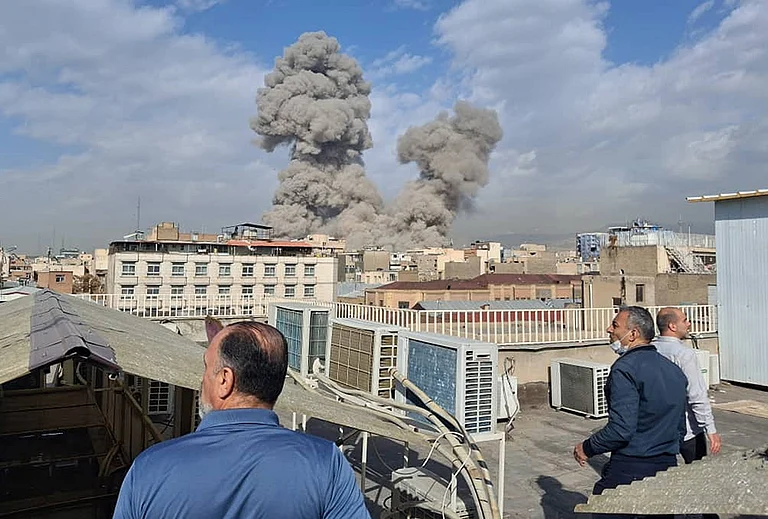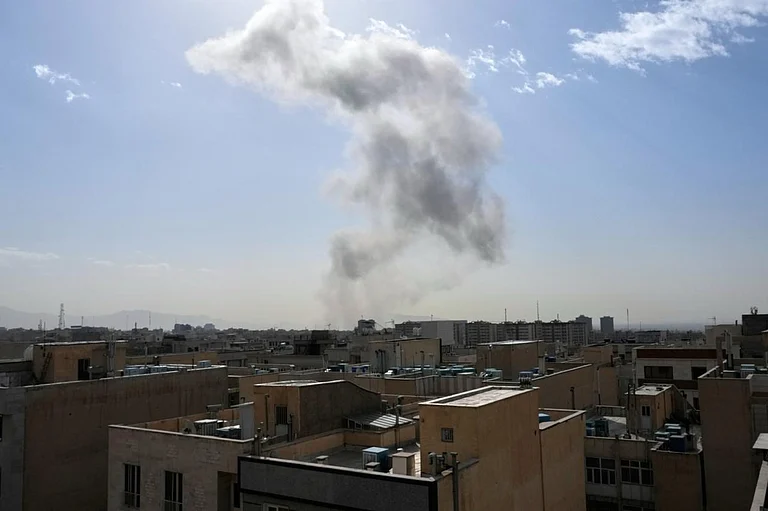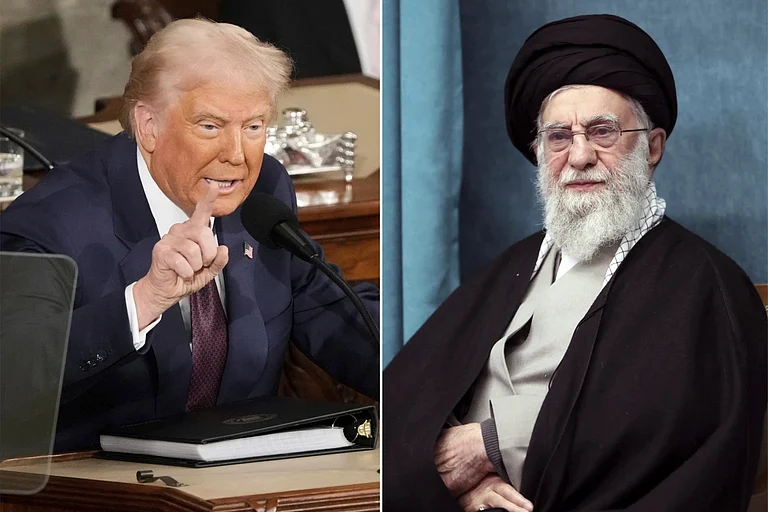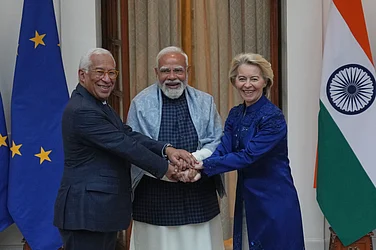A sharp diplomatic and military escalation unfolded as Iran’s parliament voted to suspend cooperation with the UN’s nuclear watchdog, following U.S. and Israeli airstrikes on Iranian nuclear sites. In response, Iran threatened to reconsider its participation in the Non-Proliferation Treaty and emphasized its intent to accelerate its peaceful nuclear program. Meanwhile, U.S. President Donald Trump claimed credit for brokering a ceasefire, calling the strikes a “successful obliteration,” and announced plans for upcoming U.S.–Iran talks
Top Development : Israel Iran Conflcit
Iran’s parliament voted to suspend cooperation with the IAEA until nuclear facility security is guaranteed.
Speaker Ghalibaf said Iran would accelerate its peaceful nuclear program.
The vote remains symbolic pending government approval.
Tehran is considering exiting the NPT treaty.
The Iranian internet has largely returned, though social media remains restricted.
The U.S. conducted precision strikes on Iranian nuclear sites, joined by Israel.
Trump described the strikes as “obliteration,” claiming they set back Iran’s nuclear efforts “by decades.”
IAEA chief Grossi countered, saying the delay is likely just a few months.
A staggered ceasefire agreement between Israel and Iran was brokered by Trump.
Iran launched missile responses, including toward a U.S. base in Qatar, before agreeing to halt operations.
Iran’s Foreign Ministry Spokesman Says ‘Right To Nuclear Energy Intact’
Iranian Foreign Ministry spokesman Esmaeil Baghaei has spoken to Al Jazeera about the status of Iran’s nuclear programme in the aftermath of US and Israeli strikes on its facilities.
Asked about US claims that Iran’s major nuclear sites are now “completely destroyed”, Baghaei said Iran plans to keep pursuing nuclear energy.
“What I have to say is that Iran’s right to nuclear peaceful energy remains intact. Iran has every right under the NPT [Treaty on the Non-Proliferation of Nuclear Weapons]… to enjoy using nuclear energy for peaceful purposes. And Iran is prepared to reserve that right under any circumstances.”
Israel Iran Conflict LIVE: EU Foreign Policy Chief Says It Is 'Not Absolute' US Strikes Were Legal
The European Union’s Foreign Policy Chief Kaja Kallas has suggested it’s still not clear whether US strikes on Iran were legal.
She says everybody who uses force “also has to justify that this is under international law”. When asked directly whether the US strikes were legal, she says it is “not absolute”.
Kallas says she believes the US strikes on Iran’s nuclear sites have set back its programme. But she says it has not “erased” Iran’s nuclear “know how” - which, she says, underlines the need for a diplomatic solution.
Head of UN's Nuclear Watchdog Says Inspectors Must Return To Iran
The head of the UN's International Atomic Energy Agency, Rafael Grossi, says his inspectors need to return to Iran and re-engage with the country.
Grossi says his top priority is to return, but adds that it would not be an easy thing.
“There's a chance for a diplomatic solution, an opening. We shouldn't miss that opportunity. It is not important whether it's two months or three months, we need a solution that will stand the test of time.” said Grossi
When asked about reports that Iran’s nuclear programme had only been set back a few months by strikes on its nuclear facilities, Grossi says: "I don't like this hourglass approach, it's in the eye of the beholder. In any case, the technological knowledge is there, the industrial capacity is there, that no one can deny."
Ultimately What Concludes Today
Iran and Israel have entered a ceasefire following nearly two weeks of military confrontation, which included Israeli and U.S. airstrikes on Iranian nuclear facilities and retaliatory missile attacks by Iran. The ceasefire was brokered with mediation from the United States and was implemented in phases, with Iran halting operations first, followed by Israel.
The International Atomic Energy Agency (IAEA) has not yet regained access to inspect Iranian nuclear sites, and Iran’s parliament has voted to suspend cooperation with the agency. Discussions are underway for a potential resumption of talks between Iran and the U.S., while Iran has expressed its intent to continue its peaceful nuclear program and has suggested it may reconsider its membership in the Non-Proliferation Treaty. The situation remains tense, with ongoing monitoring by international bodies and regional governments.


























